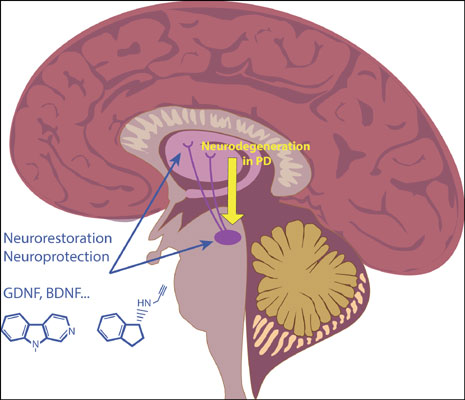The review of NIOCh's researchers Konstantin P. Volcho, Nariman F. Salakhutdinov. is published in the journal Current Neuropharmacology,2019,V. 17 , N 3 , Pp. 268 - 287 (IF 4,068)
Neuroregeneration in Parkinson’s Disease: From Proteins to Small Molecules
Yulia A. Sidorova*, Konstantin P. Volcho*, Nariman F. Salakhutdinov.Current Neuropharmacology, 2019,V. 17 , N 3 , Pp. 268 - 287
First published: 19 February 2019
https://doi.org/10.2174/1570159X16666180905094123

Abstract
Background: Parkinson’s disease (PD) is the second most common neurodegenerative disorder worldwide, the lifetime risk of developing this disease is 1.5%. Motor diagnostic symptoms of PD are caused by degeneration of nigrostriatal dopamine neurons. There is no cure for PD and current therapy is limited to supportive care that partially alleviates disease signs and symptoms. As diagnostic symptoms of PD result from progressive degeneration of dopamine neurons, drugs restoring these neurons may significantly improve treatment of PD.
Method: A literature search was performed using the PubMed, Web of Science and Scopus databases to discuss the progress achieved in the development of neuroregenerative agents for PD. Papers published before early 2018 were taken into account. Results: Here, we review several groups of potential agents capable of protecting and restoring dopamine neurons in cultures or animal models of PD including neurotrophic factors and small molecular weight compounds.
Conclusion: Despite the promising results of in vitro and in vivo experiments, none of the found agents have yet shown conclusive neurorestorative properties in PD patients. Meanwhile, a few promising biologicals and small molecules have been identified. Their further clinical development can eventually give rise to disease-modifying drugs for PD. Thus, intensive research in the field is justified.
Altmetrics:


